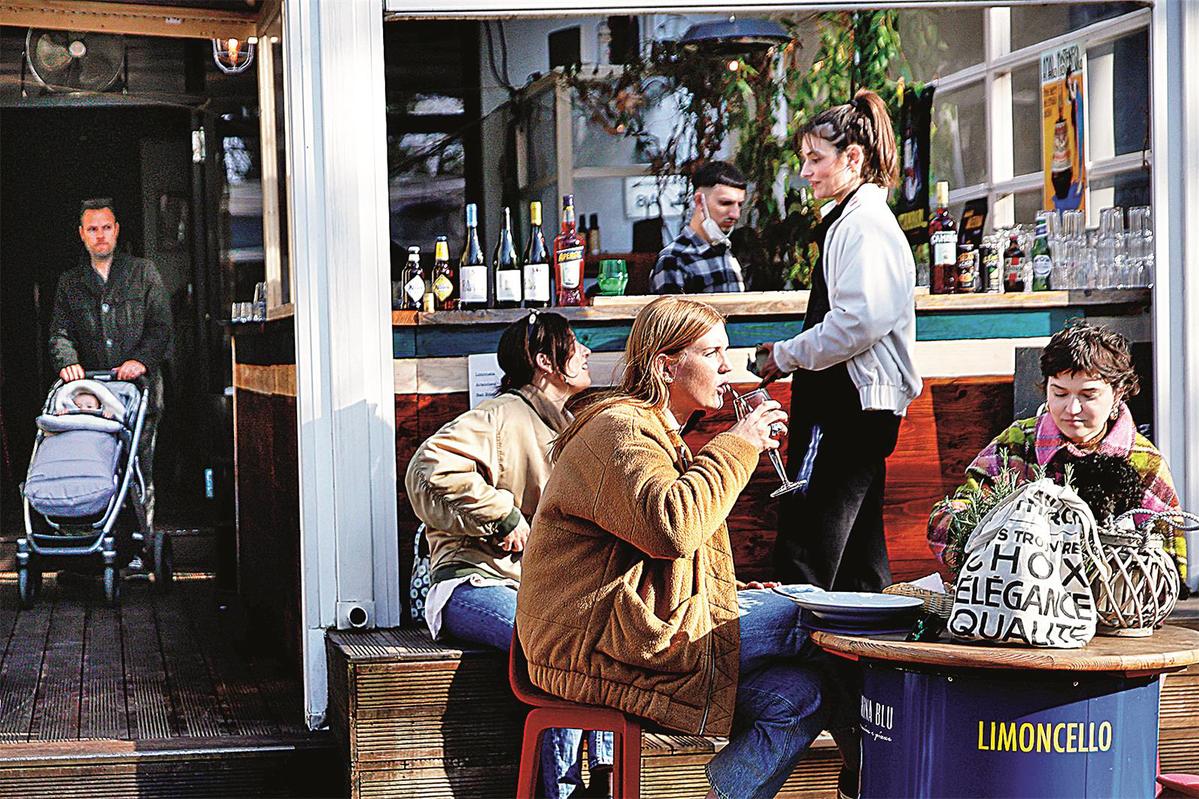EU pulled in opposite ways on virus rules


While Germans among those easing up, others tighten as infections spike
Germany and some other European Union countries have lifted COVID-19 restrictions despite a sharp spike in infections even as other members of the bloc move to tighten up controls.
Nationwide restrictions such as mandatory mask-wearing and vaccinations were lifted on Sunday in Germany after the Bundestag, the German parliament, voted on Friday to treat the coronavirus as endemic in a law known as the Infection Protection Act.
German Health Minister Karl Lauterbach described the legislation as a "difficult compromise".
"The pandemic is unfortunately not over yet. We need further protective measures," he said.
He said the legal basis for the restrictions was the threat they posed to the functioning of the health system, and he was only able to enforce restrictions in particular regions instead of the entire nation.
The 16 federal states in Germany will now decide if they need to impose stricter measures and some state leaders have criticized the move to lift restrictions as premature.
Daily cases in Germany hit a record of almost 300,000 on Friday. On Sunday, it reported 131,792 new cases, according to the Robert Koch Institute, which focuses on disease control and prevention.
"Instead of a day of freedom, a day of irrationality is looming," Klaus Holetschek, Bavaria state's health minister, told Bild am Sonntag newspaper, in response to the Freedom Day tag that some had attached to March 20.
Heinz-Peter Meidinger, president of the German Teachers' Association, said that without the mask mandate, schools would become transmission hot spots.
"I hope that all of this doesn't fall at our feet anytime soon," he told the Redaktionsnetzwerk Deutschland news group.
Most of the states, including the most populous North Rhine-Westphalia, said that they will keep the mask requirement and some other measures until next month.
Germany is just one of the many EU states that have witnessed a spike of new cases.
Neighboring Austria, which reported a seven-day average daily new cases of 44,735 on Saturday, now requires people to wear FFP2-grade face masks indoors again.
"I don't like doing that," Austrian Health Minister Johannes Rauch told a news conference on Friday evening, adding that the new rules will apply from Wednesday.
He admitted that easing restriction measures had come too early. Austria lifted almost all restrictions relating to COVID-19 on March 5 and is now the first EU state to reintroduce tougher restrictions during the current wave of infections.
Similar moves
France on Sunday reported an average of close to 90,000 new cases over the past seven days, a 36 percent jump from the previous week after the government lifted restrictions on March 14.
Greek Prime Minister Kyriakos Mitsotakis warned people against believing that the coronavirus had been conquered after the World Health Organization said on Friday that it was "far from over".
Mitsotakis said in an Instagram post after he tested positive last Monday: "The coronavirus is still very much with us."
Spain, which was hit hard by the pandemic in the early days, also indicated its intention to end the indoor mask mandate but said it was not yet ready to set a date.
"It's true that everything suggests we are getting closer and closer to that, but for us, how we do it is as important as when we do it," Spanish Health Minister Carolina Darias said last week.
Spain reported a seven-day average of 14,380 new cases on Saturday. While new cases have been rising since last week, the proportion of intensive care beds occupied by COVID-19 patients has dropped from two weeks ago.
Agencies contributed to the story.

































